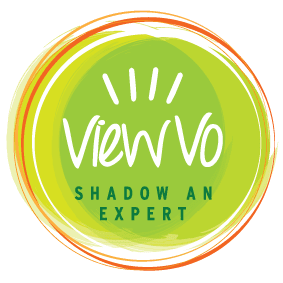‘Find a job you love and you’ll never work another day in your life!’
‘Follow your passion!’
‘Do what makes you happy!’
If you are a little skeptical – then join my club. As much as this advice is well-intentioned, it is (at best) misleading, and at worst, potentially damaging. It is not in my character to complain without trying to be constructive, so in this short article, I want to share what I’m doing and what I know works as a way of making a career change.
As a chartered psychologist and previous head of graduate recruitment at JPMorgan and globally for strategy consultancy LEK, I found people made better job choices when they’d had the benefit of doing an internship. At JPMorgan, I compared interns who accepted job offers after the summer with those we hired off the graduate scheme. After two years, previous interns were getting higher line manager ratings, higher bonuses and they self-evaluated themselves as being more satisfied in the job. Not exactly rocket science is it? If you spend time in the job, you’ll make a more informed choice. My data wasn’t large enough to be a proper research study, but it supports the large body of evidence that shows time and again, experiencing the job first leads to people making better choices. Typically, we apply for jobs without the benefit of experiencing them first. Throw a complete career change into the mix and voila – you have a recipe for misery, mistakes, the loss of life savings and a healthy dose of confidence and self-esteem loss.
I’ve spent the last 18 months trying to change this. Specifically, I’ve built up a bank of experts willing to share their job, brains and insights. It starts with a phone call – £30 for up to 30 minutes and in some cases, full blown job shadowing.
It started with Steve – a friend who sold his business. In his late 40’s, he felt a complete career change was a great idea. He’d been to view several boutique hotels in the lake district and had narrowed his search down to two favourites. At the time, I was helping my brother run his hotel, so Steve wanted my opinion on which property offered the best layout and potential for his plans. I suggested, that before he embarked on this ‘dream’ he should spend a day with my brother. He did. At the end of the day, Steve decided the hotel manager lifestyle was not for him. The reality of serving customers, the margins you work within, the reality of how much ‘free’ time you have and the sheer repetitive nature of the work was a lesson he had the benefit of learning before he’d committed himself to a £1 million+ investment.
The idea took hold, and ViewVo was born with so far, over 150 opportunities to shadow different types of work. Everything from architects to publishers, cartoonists to interior designers. My main criteria for experts is they need to be qualified, successful, with great reputations. They need to enjoy and have done it for several years. The process tends to be self-selecting. It is typically those who are most successful who are happy to get involved. A friend of mine once said, ‘competition is only competition if you aren’t doing your job properly’. Those who are at the top of their game, know it takes more than knowledge to get there, so helping others – particularly when their time is compensated for, jump on board.
It’s early days, but we’re finding about 65% of the time, (mostly women) leave the day saying ‘wow – if only I’d known earlier what this was like, I’d have done it sooner’. ‘I can totally do this job!’ Around 35% of the time (mainly men) leave saying ‘actually – not for me’. Don’t even start me off on the implications of why women don’t apply for senior jobs… If they had the chance to experience them first, I’m 100% certain this would change.
In all cases, people leave with clarity. Instead of living in the ‘research’ limbo land, they can finally move forward. Career change requires the coordination of several moving parts: values, motivations, strengths, competencies – it takes experience to learn and know what is right for you.
I certainly haven’t invented job shadowing. I’ve simply made it easier for those who are time-poor to access people who’d typically ignore their email (great people are asked all the time to have their ‘brains picked’ for free, which many find both insulting and rude). The lesson of this article can be taken without ever visiting viewvo.com. I believe anyone has the right to ask to shadow a job beforehand. What is there to lose? If an organisation says no (they probably will – sadly, not many are enlightened yet) you are back where you started – but if they say yes, you have found yourself the chance to make a better and more informed choice. When we’re talking about something likely to take up around 50% of your waking hours, isn’t that a question worth asking?

